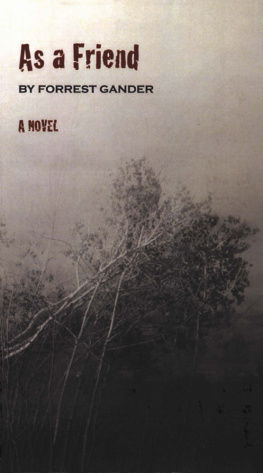Jim Defede - The Day the World Came to Town: 9 11 in Gander, Newfoundland
Here you can read online Jim Defede - The Day the World Came to Town: 9 11 in Gander, Newfoundland full text of the book (entire story) in english for free. Download pdf and epub, get meaning, cover and reviews about this ebook. year: 2003, publisher: HarperCollins, genre: Detective and thriller. Description of the work, (preface) as well as reviews are available. Best literature library LitArk.com created for fans of good reading and offers a wide selection of genres:
Romance novel
Science fiction
Adventure
Detective
Science
History
Home and family
Prose
Art
Politics
Computer
Non-fiction
Religion
Business
Children
Humor
Choose a favorite category and find really read worthwhile books. Enjoy immersion in the world of imagination, feel the emotions of the characters or learn something new for yourself, make an fascinating discovery.
- Book:The Day the World Came to Town: 9 11 in Gander, Newfoundland
- Author:
- Publisher:HarperCollins
- Genre:
- Year:2003
- Rating:3 / 5
- Favourites:Add to favourites
- Your mark:
- 60
- 1
- 2
- 3
- 4
- 5
The Day the World Came to Town: 9 11 in Gander, Newfoundland: summary, description and annotation
We offer to read an annotation, description, summary or preface (depends on what the author of the book "The Day the World Came to Town: 9 11 in Gander, Newfoundland" wrote himself). If you haven't found the necessary information about the book — write in the comments, we will try to find it.
Jim Defede: author's other books
Who wrote The Day the World Came to Town: 9 11 in Gander, Newfoundland? Find out the surname, the name of the author of the book and a list of all author's works by series.
The Day the World Came to Town: 9 11 in Gander, Newfoundland — read online for free the complete book (whole text) full work
Below is the text of the book, divided by pages. System saving the place of the last page read, allows you to conveniently read the book "The Day the World Came to Town: 9 11 in Gander, Newfoundland" online for free, without having to search again every time where you left off. Put a bookmark, and you can go to the page where you finished reading at any time.
Font size:
Interval:
Bookmark:

9/11 in Gander, Newfoundland

For my mother, and in memory of my father
W here are you going?
The man sitting next to me was curious, since wed both been on the same plane from Miami to Montreal, and now, by coincidence, we were sitting next to each other on a connecting flight to Halifax, Nova Scotia. It was early February and he was on his way home after vacationing in the Caribbean.
Gander, Newfoundland, I said.
Because of the lack of a regional accent in my voice, the man could tell Newfoundland was not my home. Why would anybody leave Miami to go to Gander in the middle of winter?
This was certainly a reasonable question. When I had left Miami it was warm and sunny and about eighty-five degrees. The forecast in Gander called for temperatures somewhere around minus ten degrees Fahrenheit, with a windchill of minus thirty.
Dont get me wrong, amazing people in Newfoundland, he quickly added. I used to live there. Friendliest people you will ever meet. Strangest, too.
The man was a civil engineer and he offered a story as proof. We had a crew that was working in this remote town in the far northern end of the province, he began. The only way to reach this town was by airplane. There were no roads into it at all. And no hotels. So while the crew is working up there, they live with families in the area. The couple they were staying with was really nice, and at the end of the job the company, as a bonus, offered to fly them to Florida for an all-expenses-paid week-long vacation.
The man laughed, recalling what happened next. The couple turns it down, he explained. They say, But we dont know anyone in Florida, why would we want to go there? So we ask them if there is someplace they would rather go instead. And they name this town that was about twenty minutes away by plane. They had friends there they hadnt seen in a while. And thats what we did. We flew them to this nearby town, and the couple spent a week with their friends, and then we flew them home again. They said it was the best vacation they had ever been on. Thats the kind of folks Newfies are.
He then added: And you know what happened there on September eleventh?
T here are a few things everyone should know about Newfoundland.
First and foremost is how to pronounce it correctly. Few things are likely to make a native of this province surly faster than mispronouncing their homelanda fact I was reminded of several times.
Newfoundland is not enunciated as if it were three distinct words, as in New Found Land. Nor is it pronounced as if it were somehow a Scandinavian colony, as in New Finland. Instead it is Newfin-land. The key is to say it very fast. One fellow offered me a simple mnemonic device: Understand Newfoundland. The words rhyme and the cadence is similar.
Over the centuries, Newfoundlanders have developed a style and language distinctively their own, an amalgam of working-class English and Irish, although in lilt and tone it leans a bit more toward the Irish. The people who originally settled here were not wealthy or well educated. They came for the fish. They were from towns along the southern coast of EnglandPlymouth and Bristol and Pooleand the west coast of Ireland, places like Ballybunion and Waterville and Galway.
Once they decided to stay in Newfoundland, they created their own style of speech that lives to this day, especially in the smaller outpost towns along the coast. It is more Shakespearean than contemporary. Sentences often end with the phrase me dear and me lovely.
Newfoundlanders employ an almost continuous third-person present tense in their speech. A phrase such as I am a fisherman would be I is a fisherman, or since Newfoundlanders contract I is into the single word Ise (which sounds like eyes), the phrase becomes Ise be a fisherman. The contractions are often a product of the speed with which they speak. The smaller the town, the faster the talk. There is even something called the Dictionary of Newfoundland English , a massive and definitive tome, which is now in its second edition and runs 847 pages.
It is also helpful to remember that Newfoundland is in a world of its own. Or at least its own time zone. Newfoundland is precisely one hour and thirty minutes ahead of U.S. Eastern Standard Time. So when it is 10 A.M. in New York, it is 11:30 A.M. in Gander. When it is noon in Los Angeles, its 4:30 P.M. in the provincial capital of St. Johns. No one else in the world is on Newfoundland time other than Newfies. Which, in a way, is appropriate.
Newfoundlanders are fiercely proud of their history and remain independent in their identity as Newfoundlanders first and Canadians second. A part of the British Empire since John Cabot landed there in 1497, Newfoundland only became a part of Canada in 1949. The margin of the popular vote in the referendum to join Canada as its last province was so slim that older Newfoundlanders still question the legitimacy of the election. Even today, many Newfoundlanders believe the central government in Ottawa has robbed them of their natural resources and cheated them out of financial well-being.
Newfoundland has an unemployment rate of more than 16 percent, the highest in Canada. Its timber industry is mostly gone, its mines are quickly becoming empty, and the fishing industryonce the lifeblood of Newfoundlandhas been decimated, they believe, by the policies of the central government, which prevents small local fisheries from operating but signs treaties to allow foreign trawlers, with their massive nets, to literally scrape the bottom of the Grand Banks and carry off the provinces bounty.
Newfoundlanders live like a people under siege. Isolated on an island and powerless against the harshness of the weather, they have learned to count on one another for survival. Neighbor to neighbor. It is a mentality that has been fostered over centuries, since the earliest settlers realized the only way to survive in this desolate but beautiful outpost was to work together. Much of their music captures this spirit. One song in particular that Newfoundlanders love is an old tune called There Are No Price Tags on the Doors of Newfoundland.
Raise your glass and drink with me to that island in the sea
Where friendship is a word they understand .
You will never be alone when youre in a Newfies home ,
Theres no price tag on the doors in Newfoundland .
There will always be a chair at the table for you there ,
They will share what they have with any man .
You dont have to worry, friend, if your pocketbook is thin ,
Theres no price tag on the doors in Newfoundland .
Their willingness to help others is arguably the single most important trait that defines them as Newfoundlanders. Today, it is an identity they cling to, in part, because it is something that cannot be taken away from them.
There is a tale Newfoundlanders are fond of repeating. It is the story of the USS Truxton , an American destroyer, and its supply ship, the Pollux . On February 18, 1942, a violent storm forced the Truxton and the Pollux to run aground beneath the cliffs of the Burin Penisula. Both ships broke apart and 193 sailors drowned. But another 186 sailors were saved when the men from the towns of Lawn and Lawrence, at great peril to themselves, descended the icy cliffs to pull them to safety.
Newfoundlanders are a different breed of people, Gander town constable Oz Fudge told me. A Newfoundlander likes to put his arm around a person and say, Its going to be all right. Im here. Its going to be okay. Were your friend. Were your buddy. Weve got you. Thats the way its always been. Thats the way it always will be. And thats the way it was on September eleventh.
Font size:
Interval:
Bookmark:
Similar books «The Day the World Came to Town: 9 11 in Gander, Newfoundland»
Look at similar books to The Day the World Came to Town: 9 11 in Gander, Newfoundland. We have selected literature similar in name and meaning in the hope of providing readers with more options to find new, interesting, not yet read works.
Discussion, reviews of the book The Day the World Came to Town: 9 11 in Gander, Newfoundland and just readers' own opinions. Leave your comments, write what you think about the work, its meaning or the main characters. Specify what exactly you liked and what you didn't like, and why you think so.












